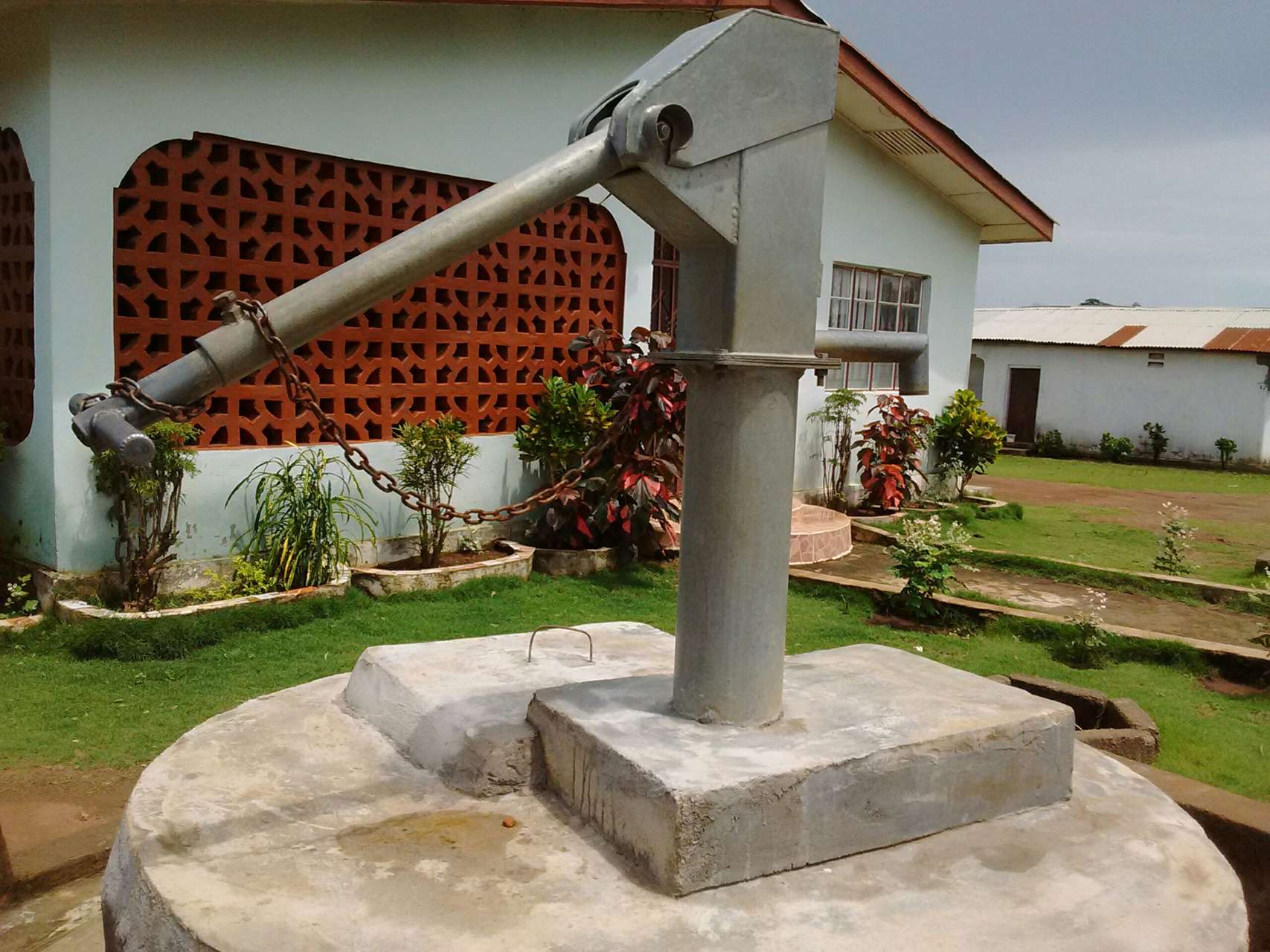This project was implemented by another partner, but is now monitored and maintained by The Water Project together with Mariatu's Hope.
When the Sierra Leone team arrived, 160 residents were dependent on an unprotected hand dug well located 4 kilometers outside the community, rain water collection and other various forms of surface water all located over a kilometer outside the community to sustain their growing water needs. The community’s use of pit latrines will help promote good hygiene behaviors in the community and help prevent further spread of illness in the area. Most residents petty trade, farm or work for the local school to support their families. There is a local St. Ann Church who will continue to cultivate community members and share the Gospel in the area after the team leaves the community. The community established a water committee who assisted the team with the water project whenever possible, supplied any materials they had available and provided meals for the team. This water committee was also provided with a contact number in case their well were to fall into disrepair, become subject to vandalism or theft.
Three members from the child health club participated in the training. The community members were excited to see their own children teaching hygiene and most adopted the lessons taught. Using the Traditional Method, the team addressed: Disease Transmission, Germs, Healthy and Unhealthy Communities, Hand Washing-Proper Techniques and Water Saving Methods, Good-Bad Hygiene Behaviors, Disease Transmission Stories, Tippy Tap, Proper Care of Pump and Keeping the Water Clean.
The Sierra Leone team had an opportunity to meet with twenty-seven year old community member and petty trader, Neneh Kamara, who stated, "The water from old source had a lot of taste, had some particles because it was from an open and was not chlorinated. The new source is chlorinated and it’s free from germs. It has no taste and it is good to drink."

 Rehabilitation Project
Rehabilitation Project













